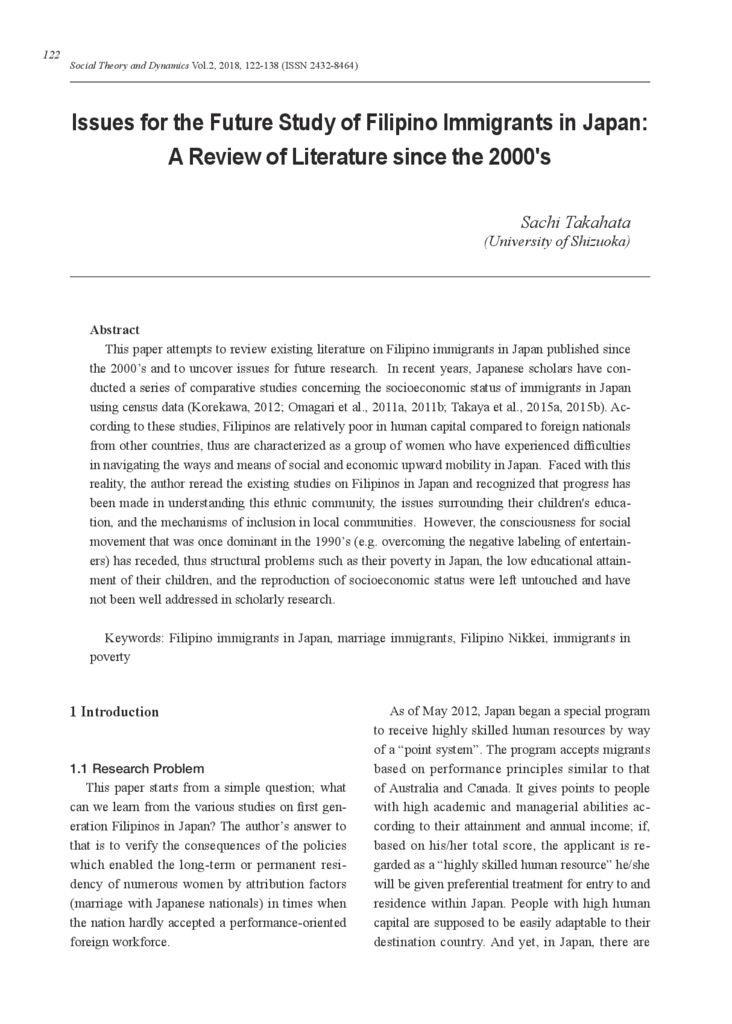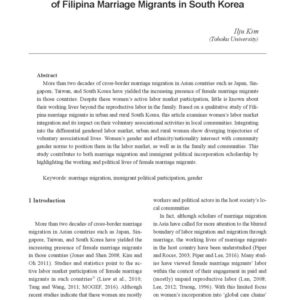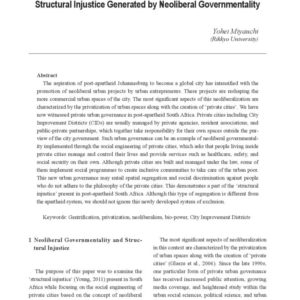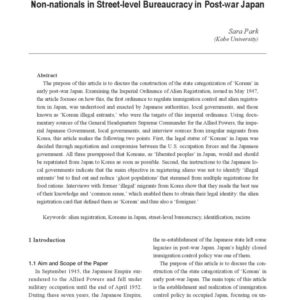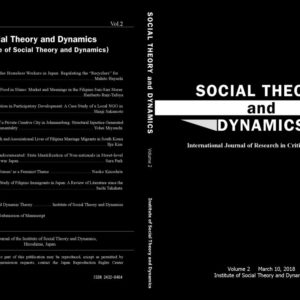Description
This paper attempts to review existing literature on Filipino immigrants in Japan published since the 2000’s and to uncover issues for future research.
In recent years, Japanese scholars have conducted a series of comparative studies concerning the socioeconomic status of immigrants in Japan using census data (Korekawa, 2012; Omagari et al., 2011a, 2011b; Takaya et al., 2015a, 2015b).
According to these studies, Filipinos are relatively poor in human capital compared to foreign nationals from other countries, thus are characterized as a group of women who have experienced difficulties in navigating the ways and means of social and economic upward mobility in Japan.
Faced with this reality, the author reread the existing studies on Filipinos in Japan and recognized that progress has been made in understanding this ethnic community, the issues surrounding their children’s education, and the mechanisms of inclusion in local communities.
However, the consciousness for social movement that was once dominant in the 1990’s (e.g. overcoming the negative labeling of entertainers) has receded, thus structural problems such as their poverty in Japan, the low educational attainment of their children, and the reproduction of socioeconomic status were left untouched and have not been well addressed in scholarly research.

